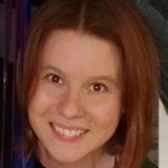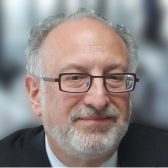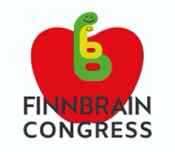Keynote speakers
This webpage is under construction.

Prof. Christine Heim is the Director of the Institute of Medical Psychology at Charité. She is also a Principle Investigator in the Cluster of Excellence NeuroCure at Charité in Berlin and a Research Professor in the College of Health and Human Development at Pennsylvania State University. Her research focuses on understanding the biological mechanisms that underlie the link between childhood trauma and increased risk for developing a range of psychiatric and medical disorders across the lifespan. With this research, she hopes to derive novel mechanism-driven targets for the prevention and intervention of disorders related to early-life adversity. Prof. Heim has authored and co-authored numerous research articles and review papers in international journals. The impact of her work is acknowledged in more than 40,000 citations of her articles. She is the recipient of several international honors and awards. In 2015, she was appointed to the Berlin Brandenburg Academy of Sciences and Humanities. She is a Fellow of the Max Planck School of Cognition and Member of the Einstein Center for Neurosciences, Berlin, Germany. She is the recipient of multiple federal grants and foundation grants. She serves on national and international scientific review committees regarding research on consequences of childhood trauma.

Noora Kotaja is a Professor of Molecular Medicine at the Institute of Biomedicine, University of Turku, Finland. After obtaining her PhD on androgen signaling at the University of Helsinki, she did postdoctoral training at the IGBMC, Strasbourg, France, on germ cell-specific regulation of gene expression. Her current research at the University of Turku focuses on RNA regulatory mechanisms in male germ cells and their implications in male fertility and paternal epigenetic inheritance of acquired conditions.

Dr. Martin H. Teicher is an Associate Professor of Psychiatry at Harvard Medical School and Director of the Developmental Biopsychiatry Research Program at McLean Hospital. He received his B.S. in Psychology from Rensselaer Polytechnic Institute, Ph.D. in Experimental Psychology from The Johns Hopkins University, and M.D. from Yale Medical School, followed by residency training in Psychiatry at McLean Hospital and Harvard Medical School. Dr. Teicher is a member of the editorial board of the Journal of Child Psychology and Psychiatry, BMC Medicine and Adversity & Resilience Science. He is a member of the Scientific Advisory Council of the Juvenile Bipolar Research Foundation, a member of the Board of Children, Youth and Families at the National Academies of Sciences, Engineering and Medicine and he has been part of Harvard University’s Brain Development Working Group. He is a member of the board of the Kahn Family Foundation and the Trauma Research Foundation. Dr. Teicher has received over 30 years of continuous NIH funding, served on or chaired numerous review committees for the National Institutes of Health, published more than 220 articles, been awarded 19 US patents, and has received numerous honors.
The mission of Dr. Teicher’s research program is to improve the lives of children, adolescents, and adults by exploring the cause and assessment of psychiatric disorders that arise during development. Dr. Teicher is particularly focused on the enduring psychiatric and neurobiological effects of childhood maltreatment. His talk will focus on the potential effects of childhood maltreatment on brain structure and function.

Dr. Michelle Fernandes’ academic and clinical pursuits involve the adoption of a “whole-child” approach to early child development, towards making a positive difference to the most vulnerable children, internationally, at risk of developmental delay. Michelle’s research focuses on: (i) understanding the interplay between factors affecting brain development during the first 1000 days of life; (ii) developing tools to better measure neurodevelopmental outcomes in young children, internationally and at scale, towards developing a universal surveillance system for the early detection of children at risk of developmental delays and (iii) evaluating scalable, family-centred interventions to promote/rescue early development. Clinically, her interests within neonatal medicine lie in neonatal brain science; the neurodevelopment follow-up of babies born preterm and in family-integrated approaches to optimising brain development outcomes in preterm babies and those with perinatal brain injury.

